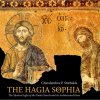Debitantsko ostvarenje reditelja Vuka Ršumovića, film "Ničije dete" proglašen je najboljim u selekciji "Novi glasovi/Novi pogledi" na prestižnom Međunarodnom filmskom festivalu u Palm Springsu, koji se svečano zatvara 12. januara. Veoma smo impresionirani ovim ubedljivim i višeslojnim debijem reditelja i scenariste iz Srbije, stoji u obrazloženju festivalskog žirija.
"Dete-glumac (izvanredna izvedba Denisa Murića) prolazi kroz neverovatne transformacije u ovoj ličnoj, intimnoj priči smeštenoj u trenutku istorijskog prevrata. Pažljivo razmatrani, a opet neočekivani izbori kao i hrabra režija, donose film koji je istovremeno savremen i univerzalan, i žiri sa nestrpljenjem iščekuje nova dela ovog uzbudljivog, talentovanog reditelja", dodaje se u saopštenju.
Selekcija "Novi glasovi/Novi pogledi" (New Voices/New Visions) ove godine obuhvatala je deset internacionalnih ostvarenja mladih reditelja čiji se filmovi prvi put prikazuju na festivalu u Palm Springsu, a da pritom nisu ušli u bioskopsku distribuciju u SAD.
Ršumović je kao nagradu dobio skulpturu čuvenog umetnika Dejla Čiulaja kao i Panavision opremu za snimanje u vrednosti od 60.000 dolara.
Film "Ničije dete" zasnovan je na fascinantnoj istinitoj priči o divljem dečaku (u filmu ga igra Denis Murić) koga su sredinom osamdesetih godina prošlog veka lovci pronašli među vukovima u šumi u planinama Bosne i Hercegovine, nakon čega je poslat u Beograd u dom za nezbrinutu decu da se socializuje. Suprotno predviđanjima, dečak, koji nasumično dobija ime Haris, počinje ubrzano da se razvija i sklapa prijateljstva. Počinje rat u Bosni i Hercegovini, a u dom stiže pismo od lokalnih bosanskih vlasti kojim se zahteva Harisov brzi povratak...
U filmu igraju deca Denis Murić, Pavle Čemerikić i Isidora Janković, kao i glumci Miloš Timotijević, Tihomir Stanić, Borka Tomović, Goran Šušljik, Zinaida Dedakin, Branka Šelić, Mihailo Laptošević, Draginja Voganjac, Marija Opsenica, Ljuba Todorović i Bora Nenić. Scenario i režija potpisuje Vuk Ršumović, dok je direktor fotografije Damjan Radovanović kome je ovo takođe prvi igrani film.
Međunarodni filmski festival u Palm Springsu jedan je od najvećih filmskih u Severnoj Americi, na kojem je prošle godine zabeleženo 135.000 gledalaca. Ove godine festival se održavao od 2. do 12. januara.
Istočnoevropski reditelji, kako novi tako i već dokazani, osvojili su najviše nagrada ove godine, kazala je umetnička direktorka festival Elen di Tua. "Snaga priča iz tog dela Evrope je diriljiva i zarazna", izjavila je ona.




